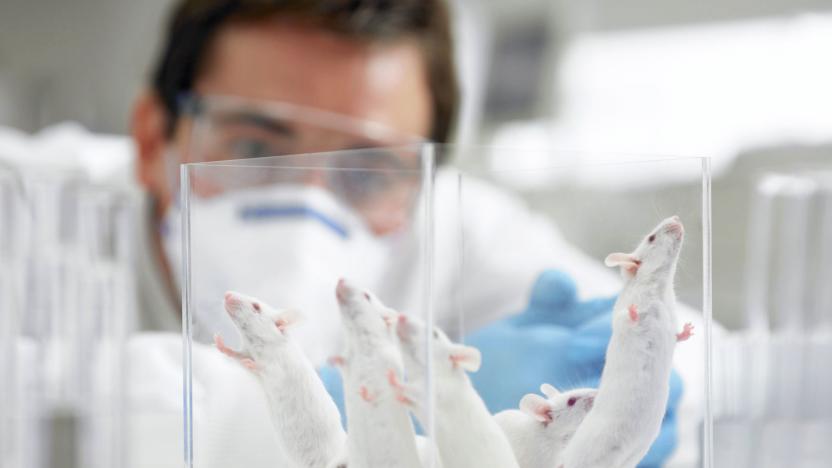childdevelopment
Latest

Rodent trials suggest screen-addiction hurts child development
A new study from the Seattle Children's Research Institute may have taken the first step towards confirming something my parents have been telling me for decades: too much TV rots your brain. Well, at least it does for mice. Scientists found that raising groups of mice in an environment designed to simulate extreme screen exposure developed behaviors similar to those found in children with ADHD -- resulting in adult mice with more memory problems and less patience.

M3 robots used to research human development, melt hearts (video)
Let's face it: anything that a human can do a robot can do better. Whether it's teaching our youngsters, giving physical therapy to our oldsters, or reading bedtime stories, robots are coming out on top. Researchers at Osaka University have developed two new devices recently called M3-neony and M3-synchy ("M3″ stands for "man-made man," while "neony" refers to the word neonate, and "synchy" to synchronized communication). The former is essentially a baby simulator that will be used to test machine learning software designed to shed some light on fine motor skill development. It is equipped with a pair of CMOS cameras for sight and microphones for hearing, gyro and accelerometer sensors, and tactile sensors. And it can crawl! The latter robot was developed to study communication through use with object recognition, speech recognition, and speech synthesis software. On the hardware end, this guy sports a head-mounted CCD camera, two microphones, a speaker, and fifteen LEDs (for making the robot blush). Needless to say, these are both very adorable -- so much so, in fact, that we might not even notice if they weaponize themselves. Let's just say the future just got a little cuter. And a little deadlier. Video after the break.
